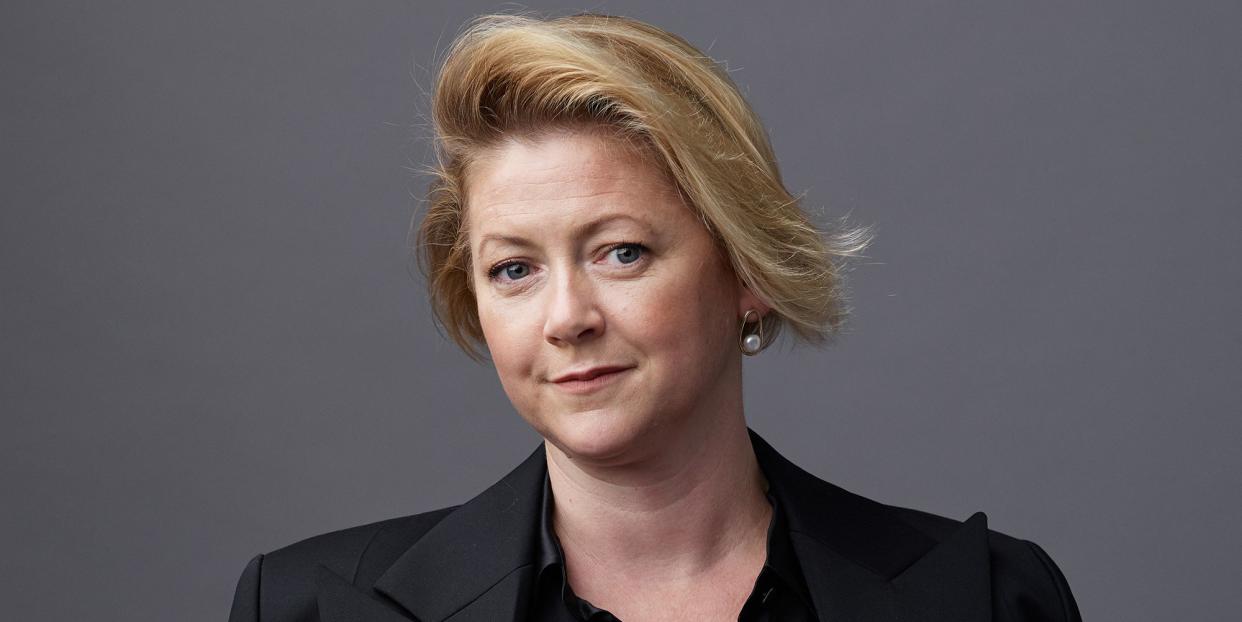Could More Female Scientists in Public Office Save America?

It’s often said that a person’s true character is revealed through how they react in the face of failures or hardship. If that’s the case, Shaughnessy Naughton is someone of exceptional integrity, and only appears to grow more motivated with each setback.
The former congressional candidate ran and lost twice in the Democratic primary for the U.S. House of Representatives for the 8th Congressional District of Pennsylvania. Instead of giving up, the researcher and chemist focused her efforts on supporting scientists across the country to run for office through 314 Action, a nonprofit she founded.
“314 Action is a nonprofit and political action committee that aims to get more scientists involved in politics and, ultimately, to elect more scientists to public office,” Naughton explains. “I work with scientists, stakeholders, and elected officials to bridge the gap between the scientific community and the political world,” she says. “2018 has been heralded by the Washington Post as the ‘Year of Scientists Running for Public Office,’ and I’m proud that 314 Action is leading that charge.”

Naughton’s love of science dates back to the fifth grade, when she made her first chemistry set. She would go on to major in the discipline at Bryn Mawr College and research a new synthesis of a breast cancer drug before joining the private sector, working on new approaches to infectious disease treatments. The potential for a major discovery is what keeps her inspired by science.
“Science-in addition to being incredibly interesting-is also aspirational,” Naughton says. “That kind of impact is hard to find in many other lines of work, and it gives scientists a sense of purpose knowing that a breakthrough could be around the corner.”
Many of the key issues facing our society-and planet as a whole-are rooted in science and technology, so scientists should play a role in solving them at a government level, Naughton argues. From healthcare reform to climate change to the future of work and automation, there’s no doubt that science is at the core of these issues-and experts in each of those field are majorly underrepresented in our national government. Currently, there is only one PhD-level scientist serving in Congress.
“More diverse voices in the halls of power mean more viewpoints necessary to formulate solutions and solve problems,” Naughton says. “Our Congress currently has more talk radio hosts than chemists and physicists, and I would posit that the approach scientists take to solving problems would be a much-needed breath of fresh air to the partisan one that has led to much of the gridlock and incivility that has become the norm.”
Historically, scientists have served in an advisory capacity on councils or in Cabinet positions. Naughton says that in 2018, it clearly isn’t working. She cites recent decisions made by the Trump administration, such as withdrawing from the Paris Accord, that are in direct contradiction of widely held and research-backed scientific knowledge. “I believe scientists need to hold our elected leaders who attack science accountable-and the best way to do so is at the ballot box,” Naughton says.
This is where 314 Action comes in: getting more scientists and STEM professionals elected by offering political training and support. Naughton and her team work closely with each individual candidate to improve their election hopes, and introduce them to the world of politics.

One area where the two worlds have an unfortunately similarity is their underrepresentation of women and minorities. Naughton says certain experiences from her science career, such as unwanted advice, were repeated while she was in politics. “Similar to how I feel about government and politics, I believe that science and innovation benefit from diversity and varied backgrounds and experience,” she says.
“Our ability to innovate and create the high-quality scientific research that has, in the past, led to life-saving discoveries and technological advancements depends on the scientists who are involved," she says. "Workplace diversity that crosses the lines of identity ensures that the talent pool we rely on for this research is filled with the best and brightest.”
The role of STEM in contemporary and future political issues-including climate change, energy independence, and the security of our elections-is undeniably important. Naughton suggests that how we handle climate change could be the defining matter of our era, and will impact future generations. “Science plays an important role in society, as it gives us the advances in medicine and technology that make our quality of life better than that of any prior generation. However, when it's pushed aside by leaders, we all suffer the consequences,” she says.
The silver lining of the Trump administration’s widespread dismissal of science is that more scientists are engaged in politics and actually running for office now more than ever, Naughton says. “There’s an energy out there among members of the STEM community that wasn’t there a few years ago when I ran for Congress, and it’s an exciting time to be involved in politics,” she says.
“Scientists are fed up with the status quo and no longer accept that politicians can attack facts without repercussions," she adds. "I think we’ll see the effects of this energy on election day this year and in elections to come.”
With the midterms on November 6th, we won’t have to wait long to find out if Naughton’s predictions are correct.
Styled by Allison Bornstein, Makeup by Erin Green, Hair by Gianluca Mandelli
('You Might Also Like',)

